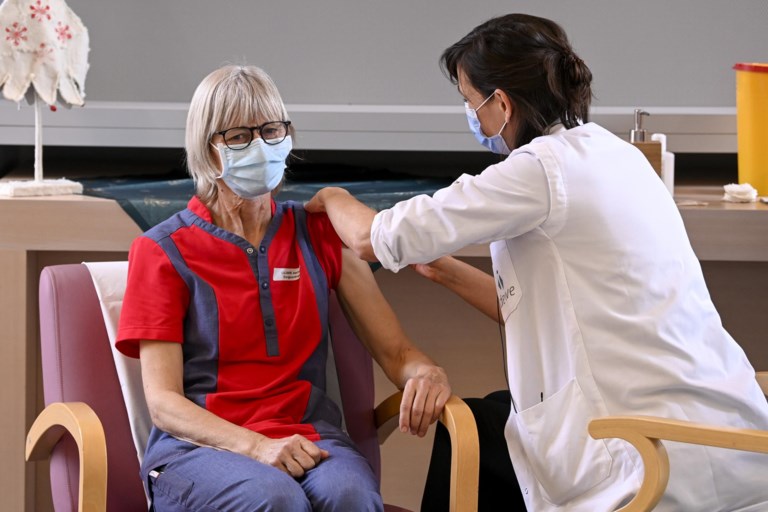If awareness-raising is not enough to convince residential care centre staff to be vaccinated, Belgium should consider making it mandatory, according to the GEMS expert group advising the government.
If awareness-raising fails, "consideration can be given to making vaccination compulsory for all care staff without medical contraindication," the experts wrote in a report on residential care centres of 16 February that De Standaard saw.
"Forcing people carries a risk, but at the same time, those who work with the elderly also bear a responsibility," confirmed biostatistician Geert Molenberghs, who is a member of the GEMS, on Flemish radio on Friday morning.
"An obligation should not be a taboo. Therefore, we have neatly listed the pros and cons," he added.
In the report, experts point to the fact that other vaccines, such as the one against hepatitis B, are already mandatory for healthcare personnel.
Additionally, considering a recent relaxation that will allow care centre residents more freedom if 90% of residents and 70% of staff have been vaccinated, experts consider it unfair that people's living conditions will be partly determined by the staff's willingness to be vaccinated.
Related News
- Elderly care workers in Wallonia and Brussels refuse to be vaccinated
- Flanders approves first relaxations for residential care centres
However, the experts also question whether it is ethical to oblige a group to be vaccinated, when many people in society would very much like the vaccine but do not yet have access to it.
Additionally, research shows that people are less willing to be vaccinated if they feel pressure, according to the report, and an obligation would not help the confidence in vaccines among the population.
At the start of February, figures by Femarbe, an organisation of private elderly care homes in Wallonia and Brussels, showed that 50% of all elderly care workers in Wallonia and 40% of healthcare workers in Brussels are rejecting the vaccine.
The only solution, according to Vincent Frédéricq of Femarbe, is mandatory vaccination. “Otherwise you risk endangering new residents, or staff dropping out due to illness, even though they could have been vaccinated.”
“I don’t understand," he said. "In April, residential care centres went through a nightmare, and now that a solution is being offered, so many staff members are refusing to take it.”
In Flanders, however, vaccination rates are high, with figures by the Flemish Agency for Care and Health showing that only about 6% of healthcare workers refused the vaccine.
Molenberghs stressed that the advice only concerns healthcare staff in residential care centres, not other groups such as hospital staff.
"An obligation for hospital staff would require a whole new debate by the expert group, which is not the subject of the current recommendation," he said.
Additionally, before such an obligation could be made mandatory, all of Belgium's government would have to agree to it.
"Therefore, this is not the first or most important recommendation of the GEMS," Molenberghs said. "Our preference is voluntary vaccination, and it will remain so."
Maïthé Chini
The Brussels Times

